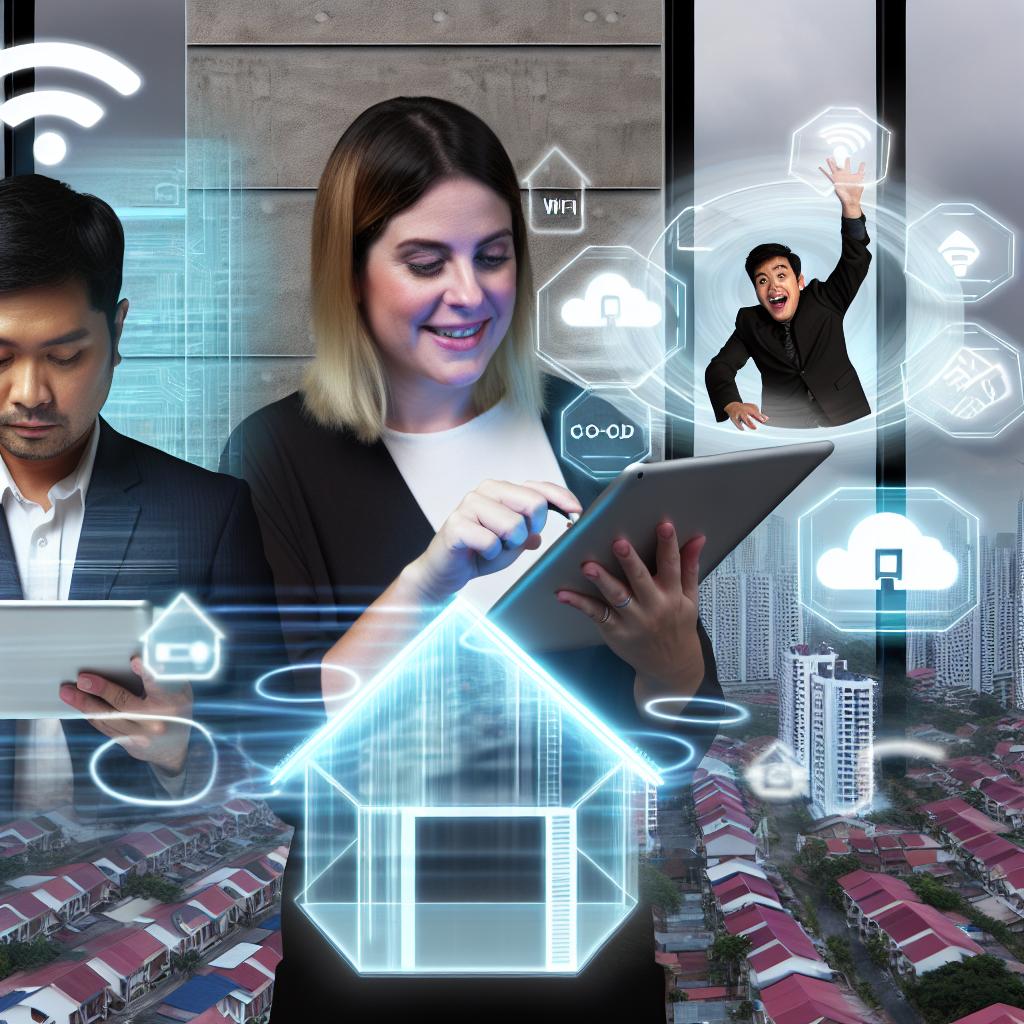How to use technology to manage rental properties

Introduction
In the contemporary landscape of property management, technology plays a crucial role in streamlining processes and improving efficiency. Utilizing digital tools can significantly enhance how rental properties are managed, benefiting both property owners and tenants. Various technologies are being adopted to improve different facets of property management, ranging from financial transactions to tenant interactions.
Property Management Software
The integration of property management software into property management practices has revolutionized how property owners and managers handle their responsibilities. These software platforms are comprehensive, offering a suite of tools designed to manage multiple aspects of a rental property efficiently. Some offer functionalities like accounting management, tenant and lease tracking, and even compliance monitoring, which can ensure that property managers stay organized and compliant with relevant regulations.
Online Rent Collection
One of the standout features of property management software is its capability to facilitate online rent collection. This feature replaces traditional methods of rent collection, such as checks or cash, which can be cumbersome and prone to delays. Online systems enable landlords to receive payments quickly and securely and reduce the risk of late or missed payments by offering automated reminders for tenants. Additionally, the integration with financial systems and banking institutions means that property managers can track and audit payments effortlessly. Implementing such a system not only saves time but also assures peace of mind for both tenants and landlords. Learn more about online rent collection.
Maintenance Requests
Technology streamlines the process of handling maintenance requests, a task that can quickly become overwhelming without proper systems in place. With online portals accessible through property management platforms, tenants can submit their maintenance requests easily. This ensures that all requests are logged, monitored, and addressed promptly. Additionally, property managers can prioritize requests, assign tasks to maintenance staff, and track the status of each job through the same system. This organized approach ensures that maintenance issues are managed efficiently, improving tenant satisfaction and prolonging the life of property assets.
Tenant Screening
One of the critical components of property management is the tenant screening process. Technology streamlines this process by offering online screening services, providing comprehensive background checks, credit evaluations, and rental history reports. These online services allow property managers to conduct thorough assessments of potential tenants swiftly. By utilizing these tools, property managers can make well-informed decisions that minimize risks associated with tenant turnover and rental defaults. Effective tenant screening not only protects the property investment but also fosters a secure and stable living environment.
Communication and Engagement
Effective communication lies at the heart of successful property management. The proliferation of digital communication tools, including email, messaging apps, and dedicated property management platforms, has revolutionized landlord-tenant interactions. These tools offer various advantages, such as providing faster responses to tenant queries and maintaining a comprehensive record of communications. Moreover, they facilitate proactive engagement, allowing property managers to share updates, reminders, and announcements promptly. This approach ensures that tenants remain informed and feel valued, contributing to improved tenant retention and satisfaction.
Virtual Tours
In an era where convenience and accessibility are paramount, virtual tours have become a valuable tool for property managers and landlords. Offering prospective tenants an immersive view of properties remotely, virtual tours leverage advanced 3D technology and high-quality videos. This method not only saves time for both landlords and tenants but also widens the pool of potential renters by reaching out to individuals who cannot visit the property in person. Virtual tours provide a realistic view of the property’s layout and features, enabling prospective tenants to make informed decisions without the need for physical visits. This innovation has proven particularly useful in expanding the reach of property marketing efforts and expediting the rental process.
Data and Analytics
Another significant advantage of incorporating technology into property management is the ability to utilize data and analytics. Modern property management tools provide analytics dashboards that yield valuable insights into rental trends, occupancy rates, and financial performance. These dashboards allow property managers to analyze market trends, tenant behaviors, and property performance comprehensively. The data-driven approach enables property managers to make strategic decisions that optimize rental income and improve operational efficiencies. By tracking key performance indicators and monitoring real-time data, property managers are better equipped to anticipate market shifts and prepare for future challenges effectively.
Conclusion
Integrating technology into rental property management processes offers a multitude of benefits, leading to enhanced efficiency, improved tenant relationships, and better financial performance. By adopting digital solutions such as property management software, online communication tools, and virtual tours, landlords and property managers can navigate the challenges of property management more effectively. The utilization of these digital tools streamlines operations, fosters informed decision-making, and provides a competitive edge in the dynamic real estate market. As the landscape of property management continues to evolve, embracing technological innovations will remain pivotal to ensuring long-term success and sustainability in the industry.
